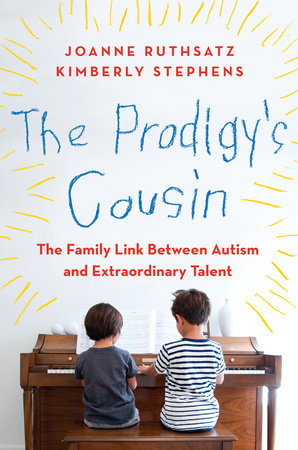



We all know the autistic genius stereotypes. The absentminded professor with untied shoelaces. The geeky Silicon Valley programmer who writes bulletproof code but can’t get a date. But there is another set of (tiny) geniuses whom you would never add to those ranks—child prodigies. We mostly know them as the chatty and charming tykes who liven up daytime TV with violin solos and engaging banter. These kids aren’t autistic, and there has never been any kind of scientific connection between autism and prodigy.
Until now.
Over the course of her career, psychologist Joanne Ruthsatz has quietly assembled the largest-ever research sample of these children. Their accomplishments are epic. One could reproduce radio tunes by ear on a toy guitar at two years old. Another was a thirteen-year-old cooking sensation. And what Ruthsatz’s investigation revealed is nothing short of astonishing. Though the prodigies aren’t autistic, many have autistic family members. Each prodigy has an extraordinary memory and a keen eye for detail—well-known but often-overlooked strengths associated with autism.
Ruthsatz and her daughter and coauthor, Kimberly Stephens, now propose a startling possibility: What if the abilities of child prodigies stem from a genetic link with autism? And could prodigies— children who have many of the strengths of autism but few of the challenges—be the key to a long-awaited autism breakthrough?
In The Prodigy’s Cousin, Ruthsatz and Stephens narrate the poignant stories of the children they have studied, including that of a two-year-old who loved to spell words like “algorithm” and “confederation,” a six-year-old painter who churned out masterpieces faster than her parents could hang them, and a typically developing thirteen-year-old who smacked his head against a church floor and woke up a music prodigy.
This inspiring tale of extraordinary children, indomitable parents, and a researcher’s unorthodox hunch is essential reading for anyone interested in the brain and human potential. Ruthsatz and Stephens take us from the prodigies’ homes to the depths of the autism archives to the cutting edge of genetics research, all while upending our understanding of what makes exceptional talent possible.
JOANNE RUTHSATZ is an assistant professor of psychology at The Ohio State University. She has been interviewed on CBS’s 60 Minutes, and her research has been published in Intelligence, Behavior Genetics, Human Heredity, Journal for the Education of the Gifted, and Behavioral and Brain Sciences, and has been quoted in The Wall Street Journal, The Atlantic, Slate, and Scientific American. She has a Ph.D. in experimental psychology from Case Western Reserve University.
KIMBERLY STEPHENS is a freelance journalist. She has coauthored academic papers on child prodigies and is a member of the D.C. Science Writers Association. She is a graduate of Princeton University and Harvard Law School.